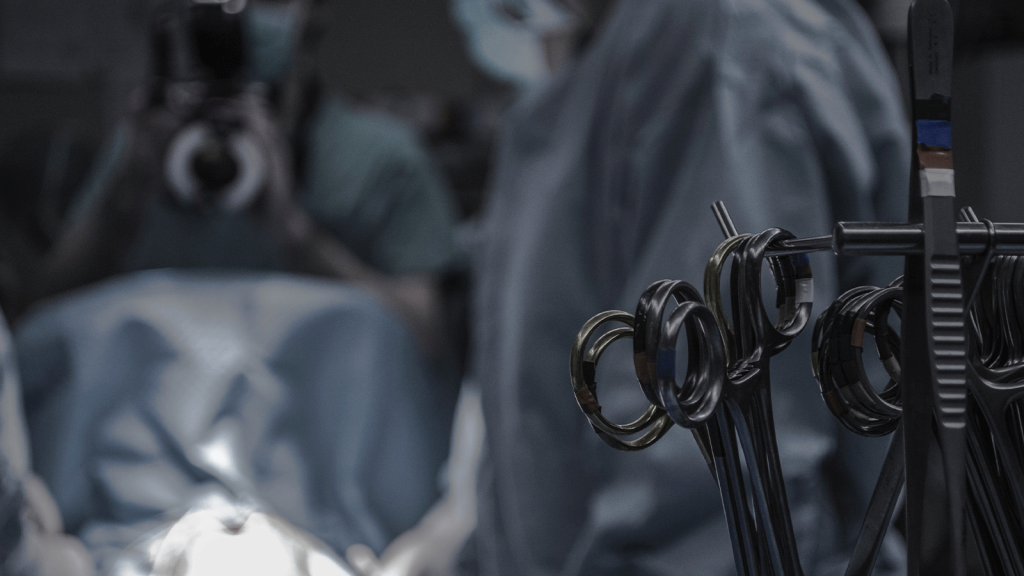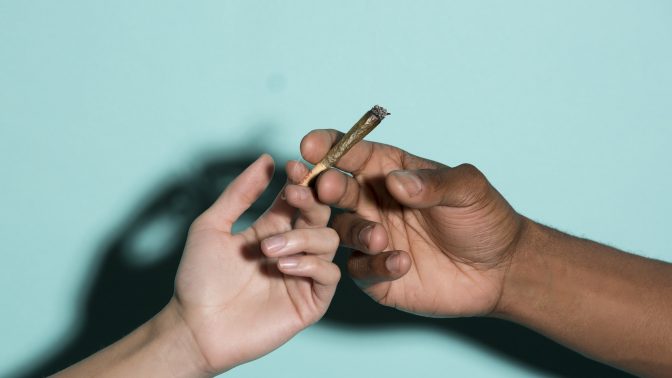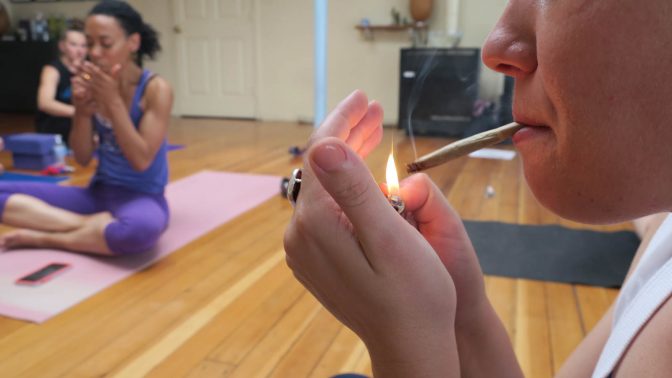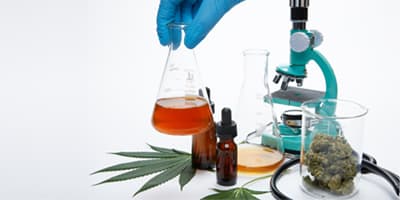Smoking tobacco before surgery is emphatically discouraged by surgeons, and for good reason: It can increase the chance of complications and may prolong the recovery process.
But what about smoking weed? Two recent studies have explored the implications of cannabis use before surgery. The findings indicate that while cannabis-consuming patients are a generally safe group to put under anesthesia, they do require special considerations before, during and after surgery and may have different pain experience than non-users.
Cannabis Users Require More Care Around Surgery
The first study, published in November 2018, investigated the surgical experience of 50 patients who were defined as regular cannabis users; — they had used cannabis at least every other day for a minimum of a month prior to surgery. The researchers reviewed each patient's case, comparing differences between cannabis and non-cannabis users before, during, and after surgery.
Three patients were unable to provide informed consent due to cannabis consumption several hours before surgery, resulting in the cancelation of their procedures. Twenty-six of the 50 patients required albuterol, a bronchodilator, to help open and clear their airways. Thirty-one patients were given glycopyrrolate to prevent increased secretions such as saliva to keep airways clear and reduce the risks of associated respiratory conditions such as laryngospasm, or spasm of the vocal cords, that can make intubation difficult.

“These issues are all common in chronic smokers,” said Dr. Hervé Damas, a physician specializing in cannabis treatment who completed surgical training at Albert Einstein Montefiore Hospital in the Bronx, New York. Long-term cannabis smokers can experience some of the same respiratory issues as chronic tobacco users and may exhibit a lower respiratory capacity.
Dr. Allen Fred Fielding, an oral surgeon and one of the study's lead authors, noted that the study brought to light some of the unique potential issues cannabis users may face when undergoing intravenous (IV) sedation.
“Cannabis users require more anesthetic agents, although they seem to need less when first placed under anesthesia,” Fielding said.
In addition, diazepam was used as a sedative for cannabis users undergoing longer procedures, since it helped to reduce agitation upon waking compared with to midazolam, which was more commonly administered. According to Damas, cannabis can exacerbate fear and anxiety for some users, which may explain why some patients awaken feeling agitated.
“Surgery is a very anxiety-provoking event in and of itself,” he said. “Uncontrolled or amplified fears/anxiety can cause panic attacks, hyperventilation, hypoxia or transient hypertension. Psychologically, cannabis can contribute to increased anxiety pre-procedure and cannabis withdrawal symptoms post-surgery if hospitalized.”
After surgery, the study's authors noted that the patients who regularly used marijuana were likely to emerge from sedation more quickly, and also experienced less nausea and vomiting. While the researchers noted that no major complications occurred, one patient in the cannabis-using group was given phenylephrine for hypotension, or low blood pressure, and one was given a sedative, flumazenil, to treat delayed recovery. Researchers could neither definitively point to cannabis as the reason for the patients needing these drugs nor rule it out.
Fielding and the study's other researchers highlighted that although marijuana users may require more careful monitoring and appropriate clinical interventions, they are nonetheless “a very safe population to sedate in the outpatient clinical setting.”
Marijuana users may require more careful monitoring and clinical interventions during surgery but are a safe population to sedate in the outpatient clinical setting. Click To TweetThe study's authors did suggest the need for more comprehensive and targeted research. Fielding noted the importance of examining the cardiovascular effects of cannabis in surgical settings.
“I have not specifically investigated cardiovascular changes, as I have yet to monitor patients for this,” he said. According to the study's review of clinical literature, cannabis can have cardiovascular effects which may present as electrocardiographic changes, increased blood pressure or increased heart rate. Fielding also advised that patients who use cannabis may benefit from more analgesics during the postoperative period.
Marijuana Linked to Increased Post-Surgical Pain
In the second study, “Weeding Out the Problem: The Impact of Preoperative Cannabinoid Use on Pain in the Perioperative Period,” the research team explored the pain experiences of patients who had recently undergone major orthopedic surgery. The researchers matched 155 patients who were taking cannabinoids including THC, cannabidiol (CBD) oil, and edibles prior to surgery with 155 patients who were not, controlling for variables such as age, sex, and type of surgery.
Patients who were taking cannabinoids before surgery indicated a higher incidence of pain while at rest (62.3 percent vs. 45.5 percent), and also experienced a higher incidence of pain with movement (85.7 percent vs. 75.2 percent) in the period just following surgery. The extent of the pain, both at rest and during movement, was also reported as being more intense.
“Cannabinoid users who had hip or knee surgery had a higher requirement for opioids in the early postoperative period when compared to non-cannabinoid users,” said Dr. Anuj Bhatia, one of the lead authors of the study.

This conclusion is consistent with Fielding's suggestion that cannabis users may require greater pain relief after surgery. The cannabinoid-using patients also experienced a poorer quality of sleep after surgery in comparison to their non-cannabinoid using counterparts.
The experience of more pronounced pain among cannabis users is potentially related to the mechanism by which cannabinoids affect pain signaling.
“It would seem logical that if a person were taking a medicine (such as cannabinoids) for pain and underwent a painful procedure only to have that medicine unavailable after, that they would express that they are in a great deal of pain,” Damas said.
More Research is Needed
Damas underlines the need to improve understanding of how cannabis works in concert with anesthesia.
“Cannabis works on many of the same pathways as traditional medications that cause sedation. When people use cannabis and sedatives concurrently, they actually equal more than the sum of their parts. If a patient is induced while high, the effect of that anesthesia can be greater than either anesthesia or cannabis alone,” Damas said.
According to Dr. Jack Springer, an emergency physician for the Mayo Hospital system in Minnesota and lecturer in emergency medicine, neither study can conclusively deem cannabis safe or unsafe when it comes to its interactions with anesthesia.
“A more informative study would be to enroll patients prospectively and determine complications, then see the relative risk associated with cannabis use among those undergoing certain surgical and anesthetic procedures,” he pointed out. “From both of these studies, it cannot be determined whether cannabis creates a greater risk during anesthesia or surgery. More comprehensive studies will be needed to help answer this question.”

However, based on his own clinical observations, Damas recommends people decrease consumption of marijuana prior to surgery to reduce the chance of complications.
“Cannabis users should begin to decrease consumption the week prior to surgery with complete cessation 1-2 days prior to surgery,” he said. “This will help decrease the chance of post-procedural cannabis withdrawal symptoms if hospitalized for more than a few days.”




